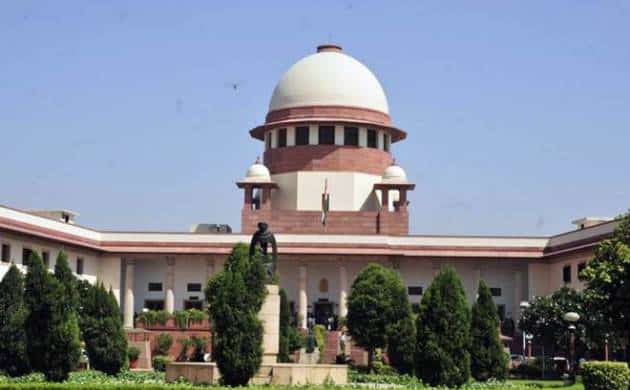New Delhi: “We do not want politics to shift to the courts,” the Supreme Court observed while hearing arguments on whether a political party can file and pursue a public interest litigation (PIL).
“The apprehension is that this will shift politics to the courts. We do not want this. We do not want politics to shift to the courts,” a bench of Justices Madan B Lokur and N V Ramana said. The apex court’s observation came after advocate Prashant Bhushan, appearing for NGO ‘Swaraj Abhiyan’ which has filed a PIL on the plight of farmers in 12 drought-hit states, said if a political party files a petition in public interest, the courts can hear it. The issue cropped up after Attorney General Mukul Rohatgi had told the bench that the NGO has made its intention clear to continue as a wing of a political party, if not a political party itself, and it should not be associated with this PIL.
During the arguments today, Rohatgi said the application filed by ‘Swaraj India’ before the Election Commission (EC) for registration as a political party was pending. “They (petitioner) have already formed a political party.
I will show what this political party does outside the court,” he said, adding “just because they (Swaraj India) are not yet registered, does not mean they are not a political party”. “If anyone is using court proceedings for political gain, then there is a political motive,” Rohatgi said.
Bhushan, however, said ‘Swaraj Abhiyan’ and ‘Swaraj India’ were separate entities and the former is not a political party. “The point is whether the issue raised by a political party raises an issue of public interest. Swaraj Abhiyan has no political interest,” he said, adding “if a political party files a petition which raises an issue of public interest and does not intend to gain any political mileage out of it, the courts should hear it”.
The bench then asked Bhushan “how can the court separate it in parts, that this is for public interest and this is for interest of the political party?”
Responding to this, Bhushan said every act of a political party, if it is for public interest, should be appreciated and if it is not for public interest, courts can dismiss the plea. The bench said a political party has a platform like Parliament or the state assembly where it can raise its voice on a issue. To this, Bhushan said “merely because political party has a platform, it should not be stopped from doing it. Political parties should be encouraged for pursuing a PIL which is for public interest”.
When the bench said that a political party can raise an issue in Parliament or assembly, he said they may not get redressal of their grievances there. “If it (political party) uses court’s platform to settle political scores, the court could see it,” he said while referring to the issue of demonetization raised by individuals as well as political parties. However, the bench said since the issue of registration of ‘Swaraj India’ as political party was pending before the EC, it would wait for the poll panel’s decision in the matter.
During the hearing, Rohatgi placed before the bench the minutes of November 9 meeting held under the chairmanship of the Secretary, Department of Food and Public Distribution, in which issue of framing of rules under the National Food Security Act was discussed. The bench asked the Centre that constitution of state food commissions and the eligibility criteria of its members should be as per prescribed provisions of the National Food Security Act.
The apex court fixed the matter for further hearing on January 18 next year. Earlier, the court had asked the Centre to release all outstanding and necessary funds for MNREGA scheme to the states and directed it to pay compensation for delayed wages to the farmers in drought-affected areas. The PIL has alleged that parts of 12 states — Uttar Pradesh, Karnataka, Madhya Pradesh, Andhra Pradesh, Telangana, Maharashtra, Gujarat, Odisha, Jharkhand, Bihar, Haryana and Chhattisgarh — were hit by drought and the authorities were not providing adequate relief.
The petitioners had claimed before court that directions given by the apex court in this matter were not complied with by the states.

